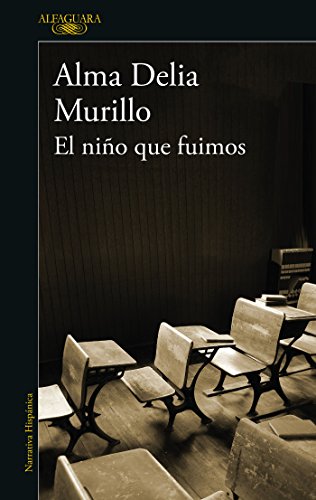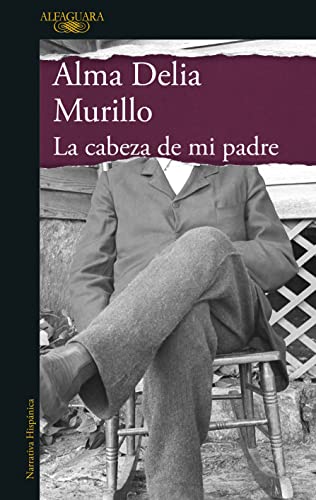be heir to Juan Rulfo It is an exercise of responsibility. Even more so when one does not have to collect ghosts of others to bring them to inhabit their soul. In the case of the Mexican writer Alma Delia Murillo the matter seems like a background narrative foundation, an excuse to narrate with that persuasive touch about the nostalgic, the existential and the sociological.
With Alma Delia's books we enjoy a multitude of sensations that embrace intimacy, but that like actions that justify any narrative proposal. A balance, a commitment that makes her stories that everything between substance and form yearned for by everyone who sits down to write at some point in her life.
In full generational harmony, it seems as if the issue of reading his works takes on another added dimension. Because there is some magnetism in the contemporary imagination. Like a bar conversation where everything flows more naturally based on shared symbols and fluid evocations of what has been experienced. In any case, it is always one of those treasured discoveries for any reader. Essential.
Top 3 recommended books by Alma Delia Murillo
Tales of evil (and one that another cursed)
The volumes of stories have the strange virtue of collecting the lives of their characters under the umbrella of the author's imagination. Disparate lives, destinies far from each other, very disparate proposals and narrative threads... But all those fleeting protagonists, in the middle of remote settings, end up stealing bits of the author's soul. The question is whether in this imaginary displayed on each "small" story the author is capable, as is the case in this case, of weaving it all together with that empathy capable of sheltering everything human.
Contradictions, survival, resilience, despair, desires, passions, fears and guilt. The stories focus on a diversity of points like stars in the sky, finally composing that dome that is everything. This book ends up conforming to this with its twenty unforgettable stories.
From The Bed and Breakfast vampire, who sows corpses wherever he stays, to Jackie, the sensual food delivery girl who enters the house of her lonely clients and executes them, going through Bartolo Gomer in The rebellion of the middle, who causes an incendiary revolution in a corporate gray of office workers, these tales recount how, in pursuit of success and "quality of life", we have built little hells through technology, the pursuit of productivity and the devotion to absurd purposes that, sooner or later, turn against us.
The protagonists of these stories mutate from good people -even good objects like The usual table- to beings that allow their dark side to appear as a conquest of freedom. They disobey, renounce, betray, kill and allow themselves to be possessed by that fragile Devil who, as Fernando Pessoa said, corrupts but illuminates.
the boy we were
Everyone is sorting out their debts and mortgages in the best way possible. Only one of those debts can never be paid. I mean what we promised to be or do when we were children and what finally happens to us. Every childhood story has that point of nostalgia, of melancholy, with hints of strange happiness. On this occasion, Alma speaks to us about confirmed debts, when one has not even had time to project those dreams that will mostly end up broken. And so the matter takes on new dimensions...
Óscar, María and Román meet at a boarding school that will be a playground for them, but also a bridge to the dark night of the soul: none of the three can avoid pain and they all share grandiose fantasies. Together they will go through loneliness and orphanhood, and will face the need to make decisions that will mark them for the rest of their lives. Then fate will separate them for twenty long years.
By the time they meet again, the three of them are already other people, three ordinary adults with common problems... but in their present and in their past there are knots to untie: homosexuality, revenge, matricidal guilt, buried love. Together again they will seek answers both in their current circumstances and in the children they were.
my father's head
There is something more hurtful than the figure of the prodigal son. Because the former is only concerned with underselling his own destiny. I refer to the figure of the prodigal father. Because this other has taken care of abandoning past, present and future, existence after all. Searching for the prodigal father may just be a vain attempt to find meaning in life. Perhaps it is not even necessary to finally find it to end up going from an orphan to fullness.
At forty years old, like a roadtrip, with no more reference than an old photograph, a daughter undertakes the search for her father. While she narrates her decision to meet him and the trip that takes her from Mexico City to Michoacán, we will build, together with her, the past, the loves, the joys, the accidents, her absences.
"We are all children of Pedro Páramo," Alma Delia Murillo tells us, faced with the common factor that is the abandonment of the home by the father. Faced with this fact, she undresses in each chapter to talk to us about the need to rebuild that symbol of universal weight, in order to define herself.
Her life, then, unfolds as the framework of this search: between seven brothers and a working mother, the protagonist grows up and reflects not only on her biography, but also on the history of a deeply divided country where women have not counted. enough, from his point of view, the story of the father.
My father's head is a transparent book, in which readers will accompany the journey to find that man of mysterious destiny and, perhaps, we will catch glimpses of our own searches. A story written from the inside, from where you can only walk the path to the origin.



